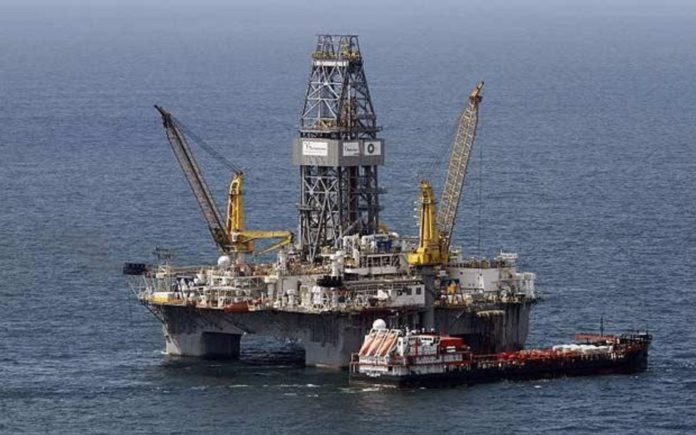An influential global body has forecast Russia’s economy will grow faster than all of the world’s advanced economies, including the US, this year.
The International Monetary Fund (IMF) expects Russia to grow 3.2% this year, significantly more than the UK, France and Germany.
Oil exports have “held steady” and government spending has “remained high” contributing to growth, the IMF said.
Overall, it said the world economy had been “remarkably resilient”
“Despite many gloomy predictions, the world avoided a recession, the banking system proved largely resilient, and major emerging market economies did not suffer sudden stops,” the IMF said.
The IMF is an international organisation with 190 member countries. They are used by businesses to help plan where to invest, and by central banks, such as the Bank of England to guide its decisions on interest rates.
The group says that the forecasts it makes for growth the following year in most advanced economies, more often than not, have been within about 1.5 percentage points of what actually happens.
Despite the Kremlin being sanctioned over its invasion of Ukraine, the IMF upgraded its January predictions for the Russian economy this year, and said while growth would be lower in 2025, it would be still be higher than previously expected at 1.8%.
Investments from corporate and state-owned enterprises and “robustness in private consumption” within Russia had promoted growth alongside strong exports of oil, according to Petya Koeva Brooks, deputy director at the IMF.

Russia is one of the world’s biggest oil exporters and in February, the BBC revealed millions of barrels of fuel made from Russian oil were still being imported to the UK despite sanctions.
Away from Russia, the IMF downgraded its forecasts across Europe and for the UK this year, predicting 0.5% growth this year, making the UK the second weakest performer across the G7 group of advanced economies, behind Germany.
The G7 also includes France, Italy, Japan, Canada and the US.
Growth is set to improve to 1.5% in 2025, putting the UK among the top three best performers in the G7, according to the IMF.
However, the IMF said that interest rates in the UK will remain higher than other advanced nations, close to 4% until 2029.
The group expects the UK to have the highest inflation of any G7 economy in 2023 and 2024.
Chancellor Jeremy Hunt said the IMF’s figures showed that the UK economy was turning a corner.
“Inflation in 2024 is predicted to be 1.2% lower than before, and over the next six years we are projected to grow faster than large European economies such as Germany or France – both of which have had significantly larger downgrades to short-term growth than the UK,” he said.
Conflict in the Middle East
Economists at the IMF warned that if the Israel-Hamas conflict escalates further in the Middle East it could lead to rising food and energy prices around the world.
Continued attacks on ships in the Red Sea and the ongoing war in Ukraine could also affect the so far “remarkably resilient” global economy, it said.
A potential spike in food, energy and transport costs would see lower-income countries hardest hit, it added.

